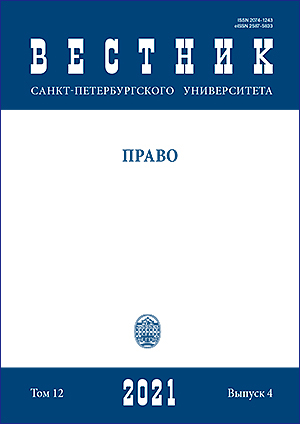Problems of freedom of association and scope of collective agreements in Belarus as a challenge to international labor standards
DOI:
https://doi.org/10.21638/spbu14.2021.417Abstract
The Law of the Republic of Belarus of 18.07.2019 No. 219-Z of Article 365 of the Labor Code of the Republic of Belarus was set forth in a new version. The interpretation of the norms enshrined in it regarding the scope of collective agreements has caused not only difficulties in practice for trade unions and employers, but also indirectly threatens freedom of association and the principle of non-discrimination. The joint explanation by the Ministry of Labor and Social Protection and the Federation of Trade Unions of Belarus, adopted in October 2020, did not remove all questions, since its literal interpretation can lead to discrimination in labor relations. The article analyzes the statement of a Belarusian politician regarding the mandatory creation of trade unions in all private companies under the threat of their liquidation. This statement in comparison with the collective bargaining endeavor of 2020–2021 on amendments and additions to collective agreements at many Belarusian enterprises is compared with international legal acts, the norms of the Constitution of Belarus, and the Labor Code of Belarus. It is concluded that such statements and attempts to include discriminatory norms in collective agreements, making the application of their provisions dependent on participation or non-participation in a trade union, are in contradiction with the norms of the Constitution of Belarus, international labor standards in terms of the generally recognized principle of freedom of association and the effective right to collective bargaining, proclaimed in a number of international legal acts of the UN and the ILO. Proposals are made to overcome the trade union monopoly in terms of collective agreements, expanding the scope of collective agreements in the Republic of Belarus, taking into account the previous historical experience of Belarus and the positive experience of the Russian Federation.
Keywords:
freedom of association, trade unions, collective agreement, scope, conventions, covenant, constitution, workers’ organizations, state, violation
Downloads
References
Downloads
Published
How to Cite
Issue
Section
License
Articles of "Vestnik of Saint Petersburg University. Law" are open access distributed under the terms of the License Agreement with Saint Petersburg State University, which permits to the authors unrestricted distribution and self-archiving free of charge.






